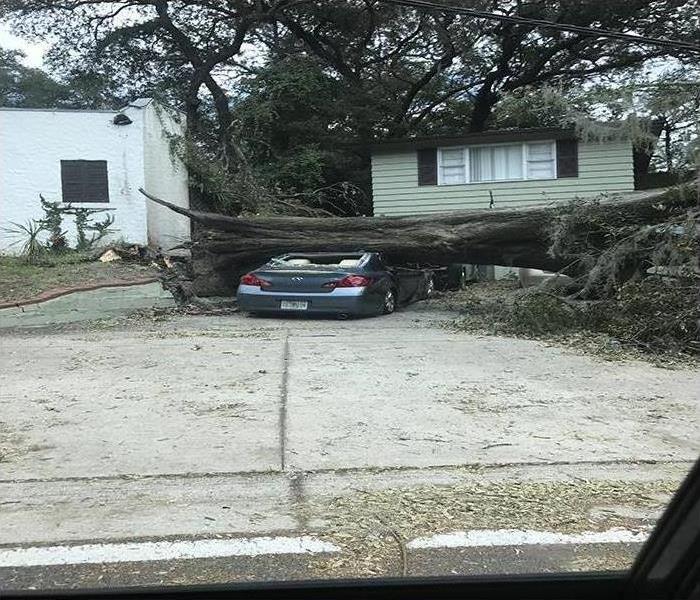What To Do When the Storm Clears and the Flooding Recedes
1/10/2023 (Permalink)
A hurricane, like any natural disaster, is a stressful event. But once the storm passes and the floodwaters recede, you'll have to assess the damage and start cleaning up. This can be overwhelming: not only are there large debris items that need removing from your home or business premises, but you also have to decide whether to hire a professional cleaner or do it yourself. Below is an overview of what to consider when deciding what actions to take after a hurricane has caused flooding in your area.
Safety
When the storm clears and flooding recedes, it is important to be safe. While it may be tempting to walk through flood waters or drive through standing water, this can put you at risk of injury or death. When in doubt, turn around and go the other way. If your car stalls in a flooded area, get out and move to higher ground before attempting to restart your vehicle.
Emergency communication
When the storm has passed and the floods recede, you will have to deal with several obstacles before you can begin rebuilding. One key concern is communicating with loved ones who may have been separated from you during the storm.
For those without power or cell phone service, this can be a difficult problem to overcome. However, there are several things you can do to ensure that family members continue to stay in contact with each other:
- First, make sure that everyone knows where their phones are supposed to be charged at home. If one person's phone is missing or broken due to water damage, then it might be possible for them or another family member to borrow one of theirs if they know where their charger is located.
- It's also important for families and communities not only keep in touch but also share vital information about resources like food pantries or shelters so they know where they can turn if necessary.
Food and water safety
Food safety guidelines:
- Check the temperature of your refrigerator, freezer, and other appliances to make sure they're still cold. If any of them are warmer than 40 degrees Fahrenheit (5 degrees Celsius), discard any food that may have been exposed to unsafe temperatures and clean the appliance thoroughly.
- The same goes for food in other places—like your pantry or garage refrigerator—as well as leftovers from meals you prepared earlier this month. Throw away anything that's been above 41°F (5°C) for more than 2 hours and get rid of any items with an unusual odor or appearance.
Medical needs
If you are injured because of the flooding, seek medical care. If you have any health conditions — such as diabetes or asthma — or take medications, check with your doctor about what to do during a flood. Make sure that you have enough medication to last until the storm passes!
Electrical safety
- Don't touch downed power lines. If you see a downed power line, don't touch it!
- Don't drive through flooded areas. The water may be deeper than it looks and can hide objects that could cause damage to your car or injure its occupants.
- Generators must be used with caution. Do not use a generator in a garage or basement where carbon monoxide gas could build up and become deadly.
Some things are acceptable to clean up on your own, while others should be left to professionals.
The first step is determining whether your property is safe to enter. If there are warnings of potential structural damage or other dangers, it’s best not to enter until local authorities have given clearance. After that, proceed with caution: if you have any doubt about your ability to safely remove something from your home or business, call in an expert for help.
Cleaners and disinfectants should be used only when cleaning up mold-contaminated items like sheetrock or furniture — not on drywall or carpeting. Avoid contact with floodwater and standing water altogether; use rubber gloves whenever possible when handling wet items like clothing or bedding as these can contain harmful bacteria.
Following these tips will help you get back to normal after your Glynlea, FL home has been flooded. It’s important to remember that it doesn’t happen overnight, so don’t be discouraged if progress seems slow or stalled at times. Don’t forget that there are plenty of organizations and agencies out there willing to help if you need some assistance!






 24/7 Emergency Service
24/7 Emergency Service